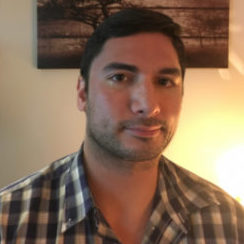Each year, on the last day of February, Rare Disease Day is celebrated across the globe to raise awareness for those who suffer from complex illnesses. This day is meant to highlight diseases that people continue to fight every day and to promote advancements that are being made to find cures.
However, Rare Disease Day is not just about the diseases that people deal with day in and day out. Bridging the gap between social, support and health services is the overarching message of this special day. The day is a chance to reflect not only about the medical challenges faced by patients and their doctors, but also the support systems upon which they rely so heavily.
About Rare Diseases
In the United States, a rare disease is defined as one that affects fewer than 200,000 people at any given time. These diseases affect a minority of the overall population, which makes them challenging to treat due to the sample size of patients being significantly lower than more common diseases.
To gain insight into rare diseases, it’s important to take a look at a couple of the nearly 7,000 rare illnesses that are in existence today.
Mesothelioma cancer is a rare disease caused by asbestos exposure, with around 3,000 new cases being diagnosed in the United States each year. Asbestos is a deadly carcinogen that can be found in many homes and buildings that were constructed before 1980. People unknowingly expose themselves to asbestos fibers through activities such as home renovation projects, and when these asbestos fibers become airborne, they have the ability to be inhaled or ingested. These fibers then lay dormant within the lungs, causing scarring and inflammation to occur, eventually leading to mesothelioma to develop. This cancer primarily affects the lining of the lungs, but can also be found in the abdomen, heart and testicles.
Another rare disease that we more commonly hear about is Dravet Syndrome (DS). DS is a form of epilepsy, often severe in nature that results in frequent and prolonged seizures. This disease is thought to be genetic, as the National Organization for Rare Disorders found that more than 80% of those with DS have a genetic mutation that affects the sodium ion channel, a structure in the cell membrane that aids electrical signals to the brain and heart. With DS causing seizures to occur so often, and with many patients being children, close monitoring must take place every day, a very labor-intensive task.
How Social, Supportive and Health Services Intertwine
While the main goal for anyone with a rare disease is to receive exceptional health care, social and supportive care also plays a huge role for anyone diagnosed with a rare disease. This can be anything from someone accompanying a patient to their doctor visits, to something as simple as watching TV with a patient while they rest. A little help can go a long way, and when a patient is surrounded by loved ones and a great support system, it can make a big difference.
It’s also important to recognize caregivers and realize that tending to someone with a rare illness is a full-time job that can be an emotional journey. Health care providers play a vital role in the treatment of rare diseases, but caregivers’ commitment and contributions are also deeply valuable, though often overlooked. Without people who are willing to help and support patients, the experience of living with rare diseases would most certainly be well behind where we are today.
Show Your Rare
Those who wish to celebrate Rare Disease Day should utilize #ShowYourRare as part of the interactive social campaign. This campaign is meant to encourage those involved to paint their faces with unique patterns and designs to stand in solidarity with those who are battling rare diseases every day. Also, look for other events that are being hosted to help those with rare diseases, and stay tuned for upcoming events such as Clinical Trials Awareness Week!
Charles MacGregor is a health advocate who specializes in mesothelioma. He works to ensure everyone has access to information about rare diseases and supports the active research being conducted to find a cure.
